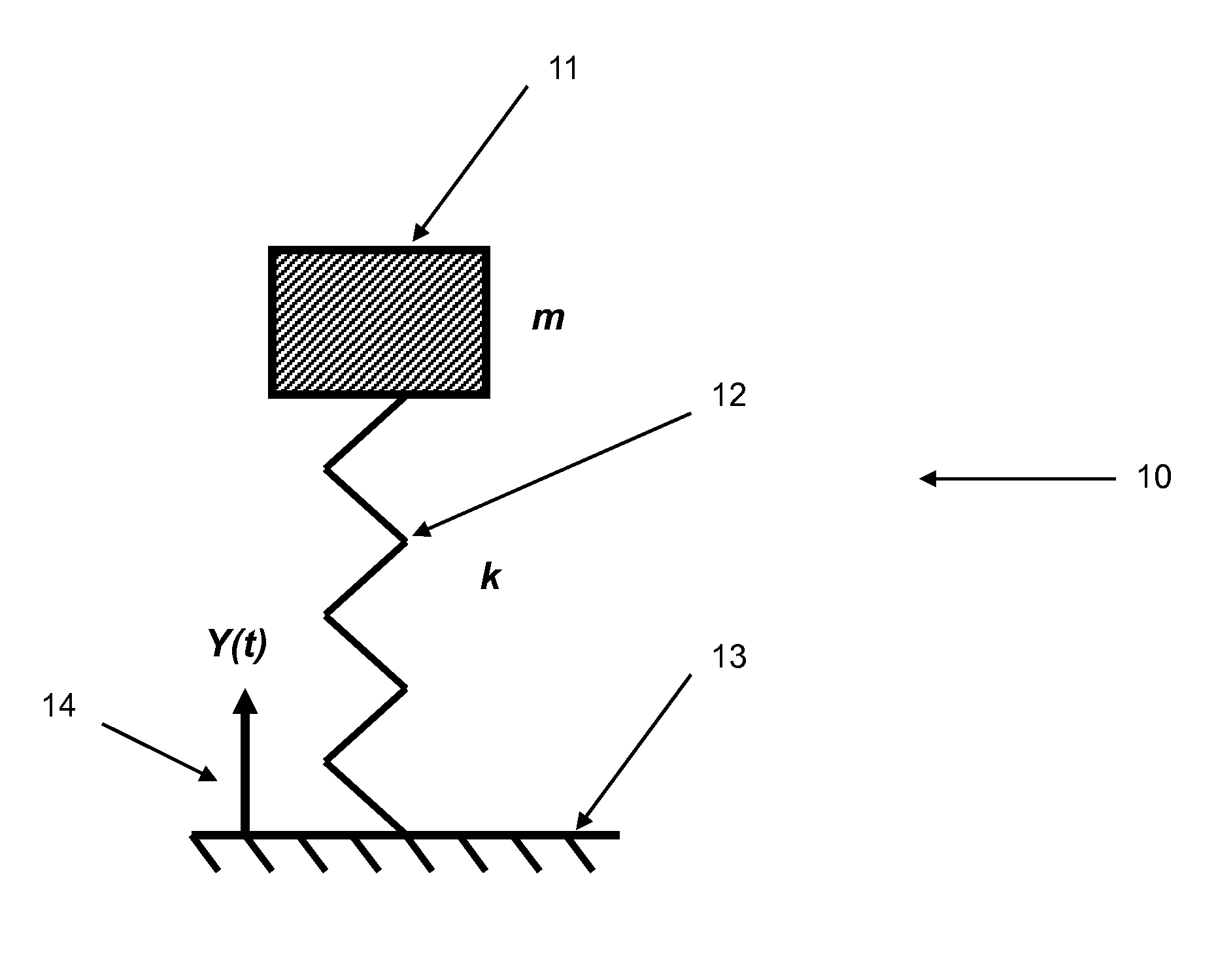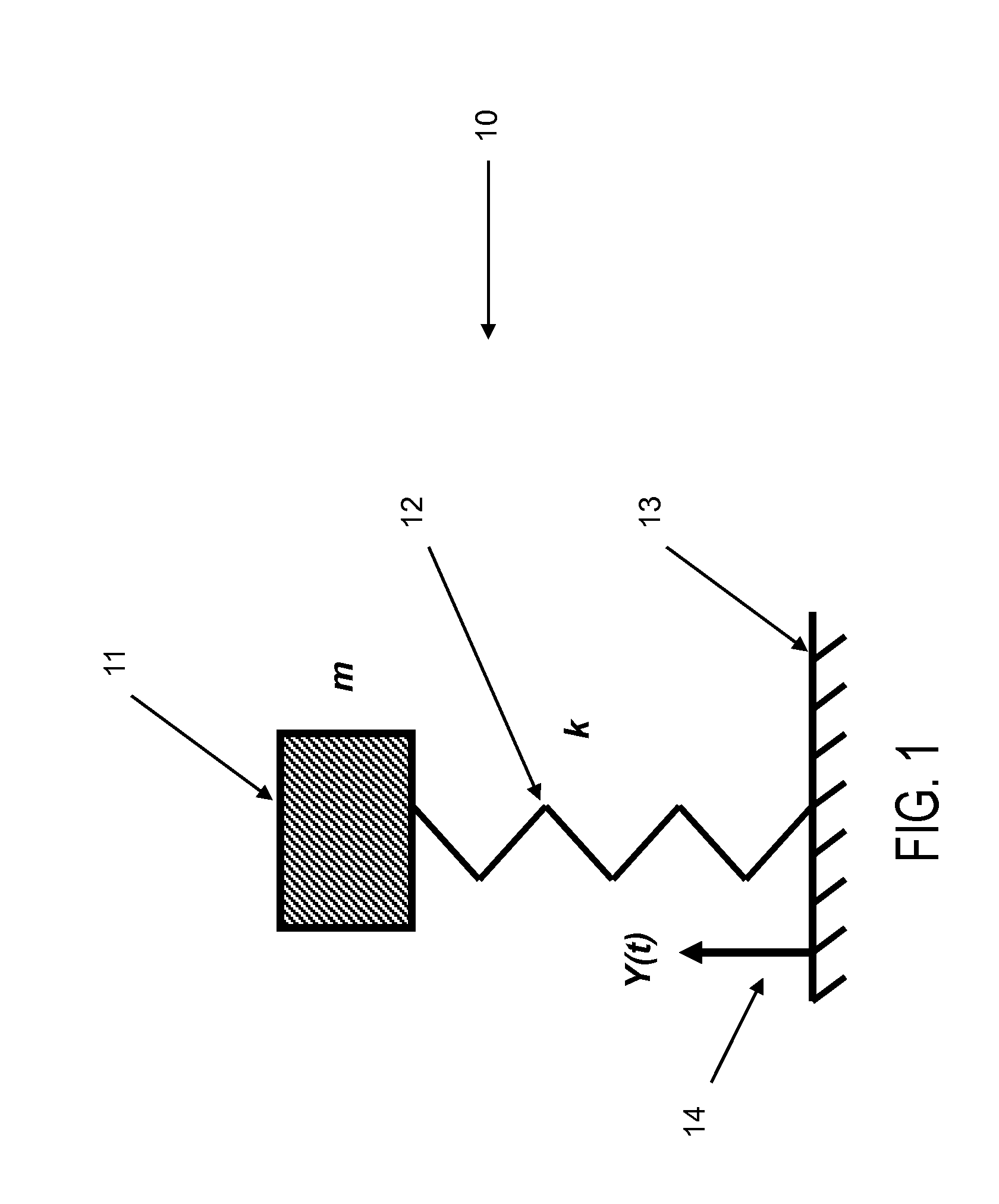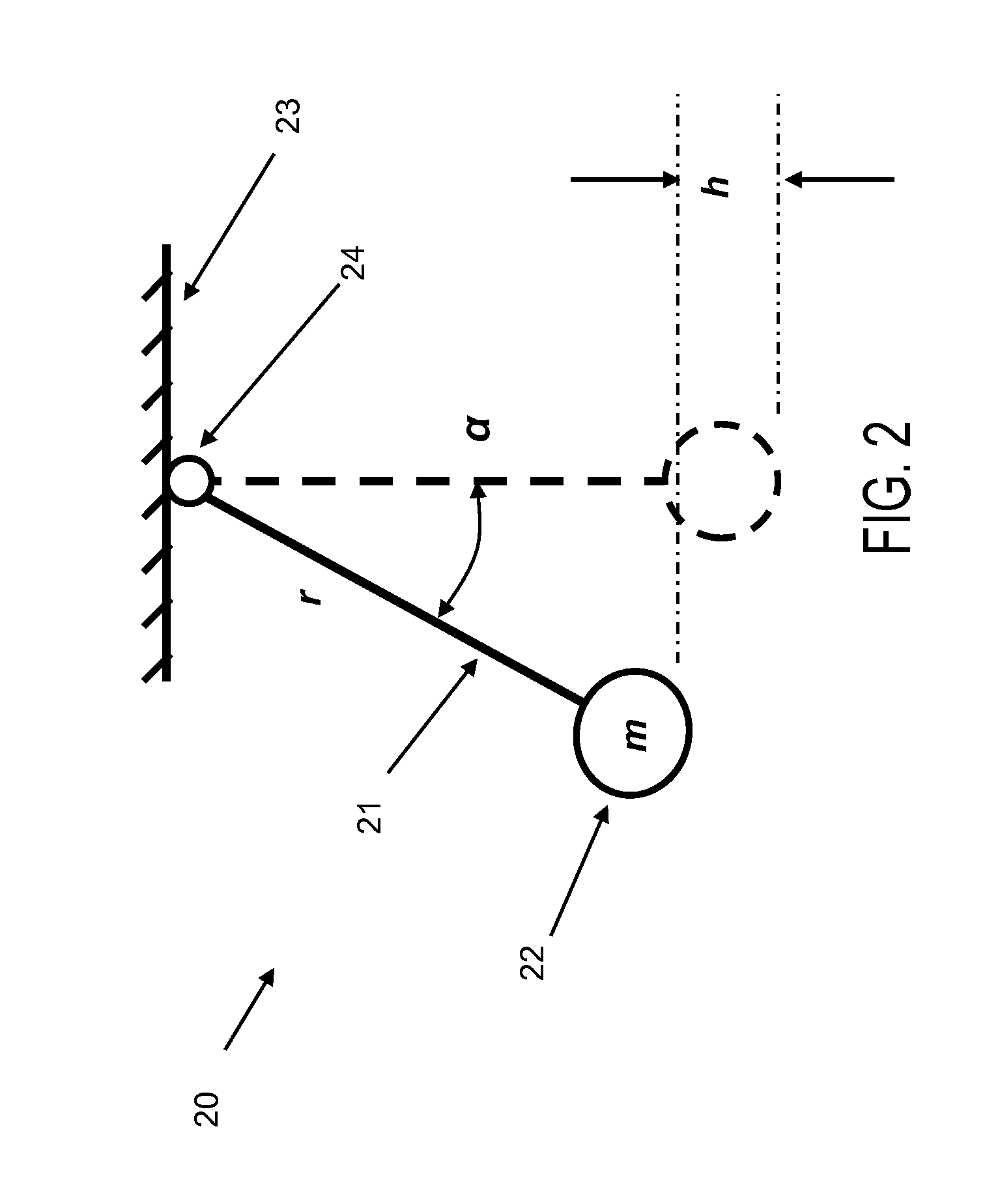Electrical Generators For Low-Frequency and Time-Varying Rocking and Rotary Motions
a generator and low-frequency technology, applied in the field of electric generators, can solve the problems of increasing equipment cost, significant down time, maintenance and service cost, etc., and achieve the effects of low maintenance cost, simple operation, and minimal service and maintenan
- Summary
- Abstract
- Description
- Claims
- Application Information
AI Technical Summary
Benefits of technology
Problems solved by technology
Method used
Image
Examples
embodiment 30
[0043]The above novel two-stage energy harvesting method for rocking platforms is best described by the following basic embodiment 30, which is shown schematically in FIG. 3. The primary system of the embodiment 30 consists of a simple housing 32, which is attached directly to the rocking platform 31. The rocking oscillation of the platform 31 is considered to be about an axis perpendicular to the plane of the page. As the platform 31 undergoes rotary oscillation, the traveling mass 33 begins to slide from the side that has been raised, travels the length of the housing 32 and ends on its opposite end of the housing. At least one secondary vibratory element 34 is attached to the top portion 39 of the housing 32. Each vibratory element consists of a relatively flexible beam 35, to the tip of which is preferably attached a mass 37 to allow for optimal tuning of the natural frequency of the first mode of vibration of the vibratory elements. The tip of the beam 35 and mass 37 assemblies...
embodiment 50
[0057]The schematic of a basic embodiment 50 of such a two-stage generator design for harvesting energy from slow and varying rotary motion is shown in FIG. 5. The generator consists of an outer housing 51, which is fixed, for example to a fixed structure 52. Internal to the housing is mounted at least one and preferably more secondary vibrating elements 55. In the schematic of FIG. 5, the secondary vibrating elements 55 are constructed as vibrating beam elements 56, over the surface of which certain active materials based mechanical to electrical energy transforming elements 57, such as bimorph piezoelectric elements, are mounted. The input is the rotating (or oscillating) shaft 53, to which at least one exciter tooth 54 is mounted. The shaft 53 is shown without bearing and support elements known in the art for the sake of clarity. The generator can operate as follows.
[0058]As the input shaft 53 rotates or oscillates rotationally, the exciter teeth 54 engage the tip 58 of the secon...
embodiment 120
[0075]It is appreciated by those skilled in the art that the flexible beam 121 of the embodiment 120 of FIG. 12 itself may be constructed fully or partially with piezoelectric materials for the purpose of converting mechanical energy of rotational vibration of the secondary vibratory system 120 can be converted into electrical energy. In addition, the effective spring rate of the flexible beam elements 121 may be designed to correspond to the desired spring rate of the torsion spring element 104, thereby eliminating the need for the torsion spring element 104.
PUM
 Login to View More
Login to View More Abstract
Description
Claims
Application Information
 Login to View More
Login to View More - R&D
- Intellectual Property
- Life Sciences
- Materials
- Tech Scout
- Unparalleled Data Quality
- Higher Quality Content
- 60% Fewer Hallucinations
Browse by: Latest US Patents, China's latest patents, Technical Efficacy Thesaurus, Application Domain, Technology Topic, Popular Technical Reports.
© 2025 PatSnap. All rights reserved.Legal|Privacy policy|Modern Slavery Act Transparency Statement|Sitemap|About US| Contact US: help@patsnap.com



